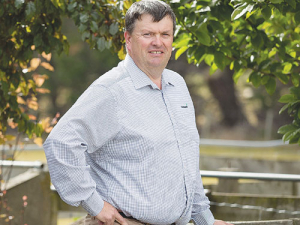Ravensdown partners with Footrot Flats to celebrate Kiwi farming heritage
Ravensdown has announced a collaboration with Kiwi icon, Footrot Flats in an effort to bring humour, heart, and connection to the forefront of the farming sector.
 Paul McKee says a good preventative worm programme is critical to ensure worm infections are kept under control.
Paul McKee says a good preventative worm programme is critical to ensure worm infections are kept under control.
Good Autumn growth sets the scene for maximum growth rates in beef cattle post-weaning, but beware worms in pasture, warns Paul McKee, an animal health technical manager at Ravensdown.
Left uncontrolled, seasonal worm peaks can reduce animal health and performance and rob farms of their productivity gains, McKee says. Energetic prevention is a must to keep worm infections under control.
With worms increasingly resisting drenches – especially the single active endectocides – worm control efforts must be effective and sustainable, McKee says.
Ravensdown recommends faecal egg count reduction tests (FECRTs) in which a mob is left undrenched until egg counts reach a moderate level, then divided into groups. Each group is then given different drenches and faecal samples are taken over the following 10 days to determine different treatments’ effectiveness.
Although FECRTs are considered expensive by some, the cost can be offset by drenching less often with effective combinations of drenches, McKee says.
Post-drench faecal egg counts and larval cultures will help determine if there is a need to change treatment plans.
Double or even triple combination drenches should be used if possible, he said.
“It’s harder for worms to survive triple drugs than it is to survive one drug at a time.”
However, McKee adds that it’s getting late in the season for testing drench combinations, since parasites mainly affect young stock, and testing on older stock better able to handle parasites can make an ineffective drench look better than it is.
Meanwhile, Ravensdown recommends specific management practices to help kill parasites:
• Avoid grazing young cattle intensively on short pasture with high numbers of larvae or on pasture grazed 1-2 months previously
• Use older cattle to clean up pasture where young cattle have been grazing
• Cross graze with sheep to reduce pasture larvae levels
• Lift farm fertility to grow better quality forage for stock
• Use crops and new grass paddocks to provide low larval challenges at times when larval challenge is high on established pastures
• Feed animals well to increase their ability to deal with worm challenges.
Fonterra’s impending exit from the Australian dairy industry is a major event but the story doesn’t change too much for farmers.
Expect greater collaboration between Massey University’s school of Agriculture and Environment and Ireland’s leading agriculture university, the University College of Dublin (UCD), in the future.
A partnership between Torere Macadamias Ltd and the Riddet Institute aims to unlock value from macadamia nuts while growing the next generation of Māori agribusiness researchers.
A new partnership between Dairy Women’s Network (DWN) and NZAgbiz aims to make evidence-based calf rearing practices accessible to all farm teams.
Despite some trying circumstances recently, the cherry season looks set to emerge on top of things.
Changed logos on shirts otherwise it will be business as usual when Fonterra’s consumer and related businesses are expected to change hands next month.